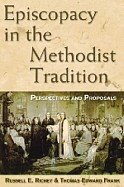 |
| From the movie "The Way Back" |
In some ways, journeying is not the ordeal it once was. I am making the 830-mile trek from Paducah, Kentucky, to Tampa, Florida, for the next two days. Tonight a fellow delegate, David Reed, and I drove to Nashville, and early in the morning we'll board a plane to Tampa. It's a relatively easy journey.
But as recent as 100 years ago, such a journey would be an ordeal and a half. I imagine the bulk of the trip would have been by train, and at the (then) average of 20 mph, it would have been a long trip - a trip marked by days, not hours. But such a trip would not have been all misery: a lot of meals shared, opportunities to view vast countrysides and towns, and conversations with those known and unknown would have led to good times and great memories. By contrast, today we can travel relatively quickly and in near obscurity: I once flew armed with an advanced boarding pass and an iPhone with my earbuds plugged in, and I didn't have to speak to a soul from the time I parked my car until the time I called for a hotel shuttle to pick me up at the airport.
I fear that we have adopted a similar manner of faith in today's church: for the remnant of us who are still followers of Christ, we are doing an extremely poor job of making disciples of Christ. In short, we are keeping our earbuds on, listening to our own song, following our itinerary as we see fit, and making it about me and Jesus. All my Southern Baptist friends in high school always told me growing up, "You gotta have a personal relationship with Jesus." I think they were 1/2 right. Unfortunately, such narcissism has helped us get into the shape we're in now... and Southern Baptists are losing members now, just like us Methodists.
We Christians have, for the most part, become very "surface" when it comes to faith, and as a result have virtually nothing to give when it comes to one-on-one relationships and faith sharing. This has become evident in the last two weeks with two faith encounters; one with an old friend and one with a new friend I made today.
My old friend was a former colleague that I worked with in a local church; after nearly 40 years in ministry, he told his story; not the story we preachers often edit to tell others and be "preachable," but the WHOLE story. It was inspiring. It was painful. It was intimate. It made him extremely vulnerable. It was full of confession and repentance. It also shared the good news of forgiveness and redemption. I left feeling awed, inspired, and convicted that we Christians have GOT to learn how to tell our stories.
Tonight, as David and I journeyed to Nashville, we stopped at the home of someone he had wanted me to meet for a long time. My new friend's experiences, particularly in men's ministries, are deep and wide, and have furthered his own convictions about our need as discipleship to grow in the areas of telling our faith stories and showing the world, in ways simple and difficult, how much God loves us.
We who claim Christ as Savior are all on a great journey, a quest if you will, and where it will take us only God knows. There are no guarantees of being spared hardship or peril. But like any journey, there are wonderful opportunities along the way: those we meet on the way, the sharing of meals and conversation, the adventure of it all.
What if we were to come to General Conference not as delegates and observers with preconceived notions and mandates, but as fellow travelers on a journey of faith - seeking to make relationships with one another, practicing faith-sharing, and making ourselves vulnerable? Daring to risk intimacy with fellow Christians? Having the audacity to confess and repent of our sins?
I would encourage us to embrace these opportunities on our journey these next two weeks. Pray about hearing and knowing those around us. Dare to think about how we might tell others our own faith story. Be intentional about your actions matching what we would want to tell the world about Jesus Christ.
There is much to do at General Conference, and I have written often about structure, discipleship, order, and hosts of other things. But the main thing is, it's all about Jesus: crucified and resurrected. If what we do isn't about lifting that up and spreading that good news, it's all for naught.
Almighty God:
During these next two weeks, help us practice and live our faith.
Remove our need to politicize and caucus.
Help us to renew old friendships and foster new ones - even those we disagree with the most.
If we are given responsibility to vote or to lead, remind us that it is you who empowers us
and you that we serve.
If we are observing, help us pray for the truth rather than root for "our side."
May our conferencing be Holy Conferencing instead of Unholy Maneuvering.
And may our will be congruent to yours.
In Jesus' name. Amen.
Pax,
Sky+









